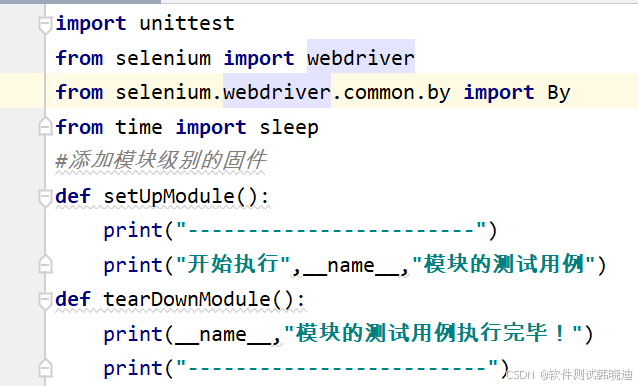使用 Select
如果此时我们有多个 channel,我们想从多个 channel 接收数据,谁来的快先输出谁,此时应该怎么做呢?答案是使用 select:
package mainimport "fmt"func main() {var c1, c2 chan int // c1 and c2 == nil//n1 := <-c1//n2 := <-c2// 如果我们想同时从 c1 和 c2 接收数据, 谁来的快// 就先要谁, 此时就需要使用 select 来帮助我们完成上述任务select {case n := <-c1:fmt.Println("Received from c1:", n)case n := <-c2:fmt.Println("Received from c2:", n)default:fmt.Println("No value received")}
}此时程序执行将会输出 default 的内容。为 select 加上一个无限循环,将会一直输出 default 的内容,但是如果去掉 default,将会报错:

这个错误在说的是,现在没有协程启动并向 channel 当中发送数据。
现在我们新建一个生产 channel 的工厂函数 generator,在 generator 当中,我们开启一个 goroutine,在 goroutine 当中我们开启一个无限循环,每一次迭代随机 sleep 一定时间,并将不断自增的 i i i输入到 channel 当中:
func generator() chan int {out := make(chan int)go func() {i := 0for {time.Sleep(time.Duration(rand.Intn(1500)) * time.Millisecond)out <- ii++}}()return out
}
此时修改 main 函数为:
func main() {c1, c2 := generator(), generator()//n1 := <-c1//n2 := <-c2// 如果我们想同时从 c1 和 c2 接收数据, 谁来的快// 就先要谁, 此时就需要使用 select 来帮助我们完成上述任务for {select {case n := <-c1:fmt.Println("Received from c1:", n)case n := <-c2:fmt.Println("Received from c2:", n)}}
}
得到的结果如下:
Received from c2: 0
Received from c2: 1
Received from c1: 0
Received from c1: 1
Received from c2: 2
Received from c1: 2
Received from c1: 3
Received from c2: 3
Received from c2: 4
... ...
一个更复杂的使用 select 的例子如下,下面的例子对上述代码进行了修改,加入了定时器,并使用 createWorker 和 worker 不断地开启 goroutine 并向 channel 发送数据:
package mainimport ("fmt""math/rand""time"
)func generator() chan int {out := make(chan int)go func() {i := 0for {time.Sleep(time.Duration(rand.Intn(1500)) * time.Millisecond)out <- ii++}}()return out
}func worker(id int, c chan int) {for n := range c {time.Sleep(time.Second)fmt.Printf("Worker %d received %d\n",id, n)}
}func createWorker(id int) chan<- int {c := make(chan int)go worker(id, c)return c
}func main() {var c1, c2 = generator(), generator()var worker = createWorker(0)var values []inttm := time.After(10 * time.Second)tick := time.Tick(time.Second)for {var activeWorker chan<- intvar activeValue intif len(values) > 0 {activeWorker = workeractiveValue = values[0]}select {case n := <-c1:values = append(values, n)case n := <-c2:values = append(values, n)case activeWorker <- activeValue:values = values[1:]case <-time.After(800 * time.Millisecond):// 如果每两次生成数据之间的时间超过了 800ms:fmt.Println("timeout")case <-tick:fmt.Println("queue len:", len(values))case <-tm:fmt.Println("bye")return}}
}


















